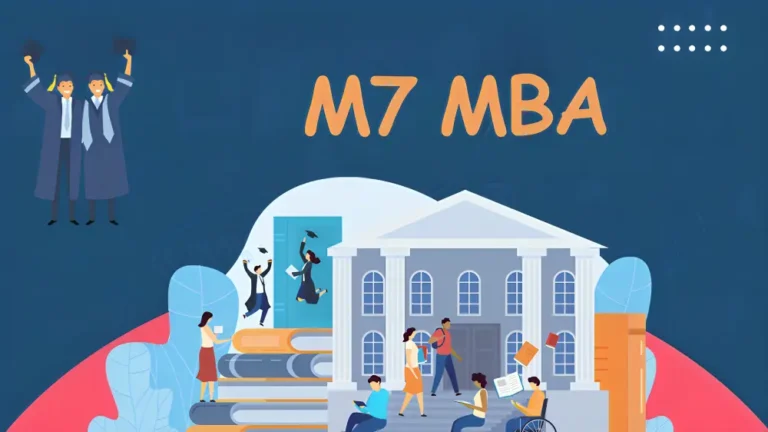BTech in Blockchain Technology: Scope and Career Opportunities
Blockchain technology is revolutionizing businesses in today’s digitally first society by providing decentralized, transparent, and safe solutions. Professionals with knowledge of blockchain are in greater demand as cryptocurrencies, smart contracts, and decentralized finance (DeFi) gain traction.
An undergraduate degree program called a BTech in Blockchain Technology is intended to give students the academic and practical skills they need to succeed in this rapidly developing industry. The fundamentals of a BTech in Blockchain Technology are examined in this article, along with the course structure, prerequisites, best universities, employment opportunities, and potential future applications.
BTech in Blockchain Technology Overview
| Course Name | B.Tech BlockChain |
| Full Name of Course | Bachelor of Technology in Blockchain |
| Level of Program | UG |
| Program Duration | 4 Years |
| Eligibility Criteria | Class 10 – 60% marks & Class 12 – 50% marks with PCB |
| Admission Process | Direct or Entrance Exam |
| Average Course Fee | INR 6 Lakh to INR 7 Lakh |
| Average Starting Salary | INR 2 Lakh to INR 6 Lakh |
| Top Recruiters | Reliance Jio, Tech Mahindra, Wipro, Amazon, Microsoft, Accenture |
What does a Blockchain Engineer do?
Development of Cryptocurrencies: Therefore, a cryptocurrency developer who has experience with fiat money is a valuable resource for governments and businesses in any nation.
Blockchain Business Analysis: He would examine the companies’ distributed ledger systems, suggest areas for improvement, and find any security issues about cryptography, the ledger system, or the blockchain overall.
Blockchain Solution Architecture: The blockchain solution architect must determine exactly how an organization can use blockchain, as well as the operational costs, return on investment, and type of reskilling required.
Blockchain Development/Engineering: Only these professionals can ensure that the teams they will be working with can successfully implement the blockchain system. The blockchain-based distributed ledger system is created, maintained, and safeguarded by the blockchain developers. They will be held accountable for ensuring that all transactions, whether they involve money or something else entirely, go well.
Why should you choose B.Tech CSE in Blockchain?
- The demand is rising, and the positions that follow this course pay well.
- Because blockchain technology guards against the dangers of cybercrime, it is very practical and in great demand.
- It may be used in any field. Finance, education, the public sector, agriculture, personal transactions, information technology, land title registration, stock trading, electronic voting, and many more are among these industries.
- Termination of According to current studies, this technology won’t be developed. According to statistics, the number of people using blockchain technology has grown over time and is expected to continue growing.
Eligibility Criteria
Undergraduate blockchain courses are offered by institutions under the B.Tech. Computer Science program. In India, a candidate must pass the 10+2 exam with PCM subjects in order to apply for a B.Tech. in computer science. In the 10+2 exam and PCM subjects, some colleges need 50% of students to receive a passing grade, while others demand 60% to 70%.
What is the salary of B.Tech CSE in Blockchain?
Both blockchain engineers and the field of blockchain development are overly demanding. So, once someone learns everything there is to know about blockchain, the profits will be substantial. A blockchain developer in India is expected to earn between Rs. 8 lakh and Rs. 15 lakh annually.
The wage range for a blockchain trainer is around Rs. 2 lakh to Rs. 6 lakh annually. A blockchain engineer may expect to earn between Rs. 2 lakh and Rs. 4 lakh annually from the many remote employment opportunities related to blockchain.
B.Tech Blockchain Syllabus
| Semester 1 | Semester 2 |
| Mathematics | Data Structures |
| Physics | Operating Systems |
| Leadership and Teamwork | Discrete Mathematics |
| IT Industry Verticals | Computer System Architecture |
| Induction Program | Python Programming |
| Programming Languages with Lab | Engineering Physics with lab |
| Semester 3 | Semester 4 |
| Object-Oriented Programming | Advanced Database Management Systems |
| Design and Analysis of Algorithm | Data Communication and Computer Networks |
| Software Engineering | Computer Graphics |
| Project management | CryptoCurrency |
| Introduction to Blockchain | Critical thinking and writing |
| IT Application & Data Security | Modeling and Simulation |
| Ethical Leadership | Human-Computer Interface |
| Semester 5 | Semester 6 |
| Micro Processor & Embedded Systems | Public Blockchain- Ethereum |
| Compiler Design | Blockchain Applications for Cognitive |
| Industry Use Cases using Blockchain | Blockchain for Public Sector |
| Starting your Startup | Emerging areas in Blockchain |
| Blockchain Components and Architecture | Managing Relationship and Being Happy |
| Minor Project-I | Minor Project-II |
| Semester 7 | Semester 8 |
| Finding your Purpose in Life | Internship |
| Exploratory Elective | Major Project II |
| Major Project I | Software Reliability & Testing |
| Enterprise Resource Planning | Software Quality Assurance |
Skills Required by a Blockchain Developer
The Architecture of Blockchain: The network architecture and supporting technologies should be well understood by blockchain engineers. It is essential to understand blockchain ideas and operations, such as distributed ledgers, smart contracts, cryptography, hash functions, and decentralized applications.
The Structure of Data: Data structures make up the entirety of a blockchain network. Data architecture and the workings of a blockchain network should be understood by blockchain developers. Add-ons include details about the many types of data structures, such as heaps, graphs, linked lists, hash trees, and Merkle trees.
Development of Web Pages: Blockchain and web development work well together, with a greater emphasis on decentralized apps. This implies that a blockchain specialist should be knowledgeable about every aspect of web development. You may learn useful and approachable blockchain web apps with a B.Tech in Blockchain.
Solutions for Interoperability: A blockchain engineer has to be able to deal with cross-chain technologies since, as you are aware, blockchain is an interconnected network. Since blockchains can communicate with one another thanks to their interoperability, a tech specialist should be able to hear what they have to say.
Conclusion
Students who earn a BTech in Blockchain Technology get the technical and analytical abilities necessary to succeed in the quickly expanding blockchain sector. This degree provides opportunities to well-paying, in-demand employment with broad applications in governance, healthcare, finance, and more. Blockchain experts will remain crucial in influencing the direction of technology as digital transformation quickens.






